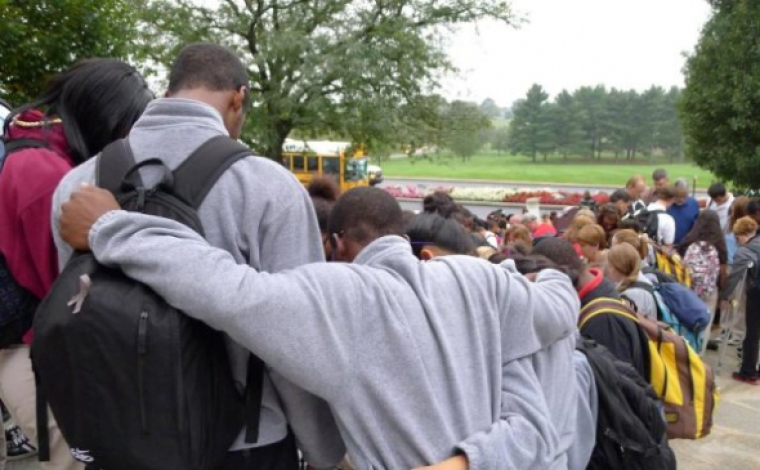Prayer Banned at Graduations, School Events After Nation's Largest Atheist Group Complains

A school district in Massachusetts will no longer allow prayer at its school-sponsored events in order to appease one of the nation's leading atheist groups.
Last month, Canton Public Schools Superintendent Jennifer Fischer-Mueller informed the Wisconsin-based Freedom From Religion Foundation that "steps have been taken to ensure that there will be no prayers or religious rituals" included as part of any school ceremony or school-sponsored event, including graduation ceremonies.
Fischer-Mueller's letter came after FFRF, which advocates for a strict separation of church and state and regularly pressures school districts and local government entities across the nation to drop all types of religious activities and cooperation, sent a demand letter to her in late June.
The letter complained about the fact that the Rev. John Tamilio III of the Congregational Church of Canton was invited to give a prayer at the 2018 Canton High School graduation ceremony last spring.
Tamilio was invited by Principal Derek Folan to give the invocation.
In the invocation, Tomilio is alleged to have called upon a "holy, loving, and most gracious God" in asking Him to bless the graduating students. Tomilio was also said to have prayed that the students would "serve others in service of You." The prayer concluded with Tomilio asking the audience twice for an "Amen."
FFRF legal fellow Colin McNamara argues that Tomilio being asked to give a prayer at the ceremony is a violation of the Establishment Clause of the First Amendment. He claims, among other things, that the religious invocation alienates students who are not religious.
"A prayer taking place at a 'regularly scheduled school-sponsored function conducted on school property' would lead an objective observer to perceive it as state endorsement of religion," McNamara stated. "It makes no difference how many students or families want prayer at the graduation ceremony."
The Christian Post reached out to Fischer-Mueller for clarification on the school district's policy. She was asked how schools in the district were informed of the policy and whether students who want to offer a prayer in their graduation speeches would be allowed to do so. A response is pending.
In his letter from June, McNamara cited the 1991 U.S. Supreme Court case of Lee v. Weisman. The court ruled in a 5–4 decision that government involvement through the invitation to a rabbi to speak at a Rhode Island middle school's graduation ceremony created a "a state-sponsored and state-directed religious exercise in a public school."
Dissenting in that case where Justices Antonin Scalia, Clarence Thomas, Byron White and former Chief Justice William Rehnquist.
"The history and tradition of our nation are replete with public ceremonies featuring prayers of thanksgiving and petition," the late Scalia wrote in the dissenting opinion.
Scalia also criticized the majority's "deeper flaw" of relying on the question of "peer pressure" coercion.
"The coercion that was a hallmark of historical establishments of religion was coercion of religious orthodoxy and of financial support by force of law and threat of penalty," Scalia added. "Typically, attendance at the state church was required; only clergy of the official church could lawfully perform sacraments; and dissenters, if tolerated, faced an array of civil disabilities. Thus, for example, in the colony of Virginia, where the Church of England had been established, ministers were required by law to conform to the doctrine and rites of the Church of England; and all persons were required to attend church and observe the Sabbath, were tithed for the public support of Anglican ministers, and were taxed for the costs of building and repairing churches."
Justice Anthony Kennedy, who recently retired and whom President Donald Trump is trying to replace with nominee Judge Brett Kavanaugh, wrote the majority opinion.
"We know too that sometimes to endure social isolation or even anger may be the price of conscience or nonconformity," Kennedy wrote. "But, by any reading of our cases, the conformity required of the student in this case was too high an exaction to withstand the test of the Establishment Clause. The prayer exercises in this case are especially improper because the State has in every practical sense compelled attendance and participation in an explicit religious exercise at an event of singular importance to every student, one the objecting student had no real alternative to avoid."
As many school districts would rather change their policies to avoid the costly legal fees of a lawsuit, FFRF has been successful in getting many school districts to change their prayer policies.
Read more about prayer at school on The Christian Post.